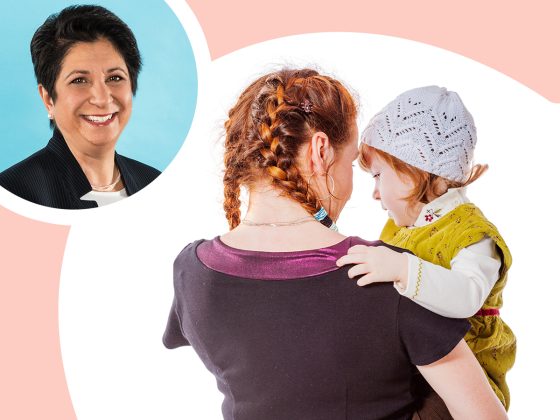
Guest Post: Preschool Bullying
Not all aggressive behaviors are acts of bullying.
Excerpted from Sesame Street: Ready for School! A Parent’s Guide to Playful Learning for Children Ages 2 to 5 by Rosemarie Truglio, Ph.D., Senior Vice President of Curriculum and Content, Sesame Workshop
Yes, your child can engage in bullying behaviors or be a victim of bullying, even in preschool. However, not all aggressive behaviors are acts of bullying. In fact, the term is often misunderstood and misused. Here are some useful thoughts on the subject of bullying.
- What is bullying? Bullying is a specific type of aggressive behavior in which a child or group of children with more power (for example: if they are bigger, older, or have more friends) acts with the intent to harm another child and the mean behavior is usually repeated. Bullying may take many forms and includes physical (hitting and kicking) and emotional (mean name-calling as well as social exclusion).
- Is teasing bullying? Teasing is actually very common in children’s play relationships, similar to how adults would use sarcasm to bond or connect with someone. Among friends, one might tease someone, but it occurs in a friendly, back-and-forth banter, rather than being rooted in a power dynamic where one person takes control and wants to humiliate someone or put someone down.
- Is name-calling a form of bullying? If name-calling is a recurring pattern, characterized by a power differential with the intent to use the name to put the child down and make her feel bad, this is an act of bullying.
- How to know if my child is being bullied? Signs to look for in your child: doesn’t want to go to school; shows concern about what (s)he wears or brings to school; has unexplained changes in their sleep or appetite; and has unexplained crying episodes.
- What should I do if my child is being bullied? Remember that being victimized is very scary for a child, so it’s important that you begin creating security and making her feel safe. Stay calm and listen to your child and don’t be so quick to react in an emotional way. Remember, bullying is a planned act by someone who has power over the victimized child. Refrain from telling your child to confront a bully, as this may put the child at greater risk for being hurt. Praise your child for coming to tell you and to gather the facts so you are in a better position to help him with the situation.
- How do I know if my child is bullying other children? One indicator is if you receive reports from teachers that your child is engaged in repeated aggressive behaviors with peers. Or, you may observe them bullying their siblings. What’s important is to understand the underlying reasons for these intentional acts of aggression, and the steps necessary to deal with them.
- Is bullying a rite of passage? Adults should neither accept nor ignore this hurtful and harmful behavior.
- Do I call the parent or the school? It’s almost always best to contact the director of the center or school to discuss your concerns and have the director bring the parents in to discuss the situation. It is useful to have a third party involved in that conversation. Calling the other parents and saying, “I think your kid is bullying my kid,” even if you are calm on the phone, may elicit denial or a negative reaction. Putting someone on the defensive, even if you have a friendly relationship with them, can create a back-and-forth and a he-said/she-said situation.
- How can friends help? If your child sees another child being bullied, tell him to go to a trusted adult who will listen and intervene.
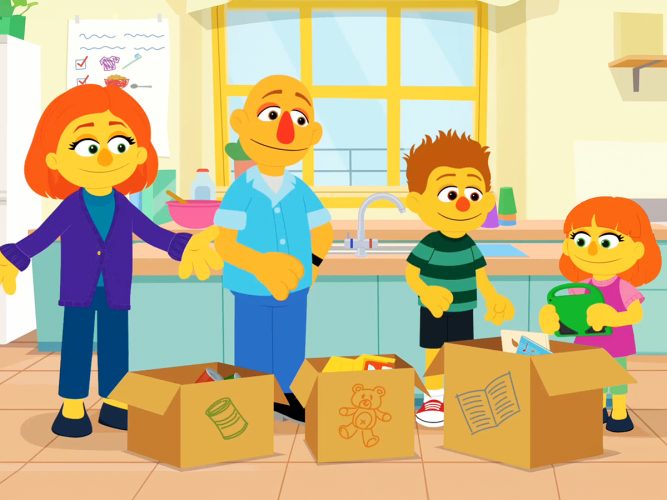
Helping at Home, Helping the Neighborhood
Little acts can make a big difference.
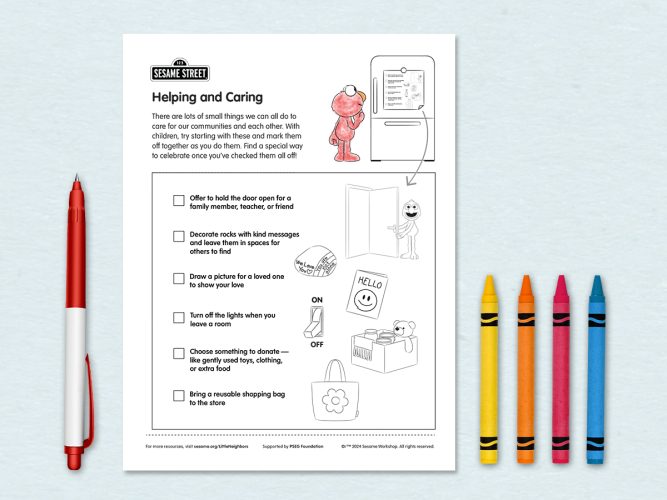
Helping and Caring
Use this checklist with children to set small goals together and help your community!
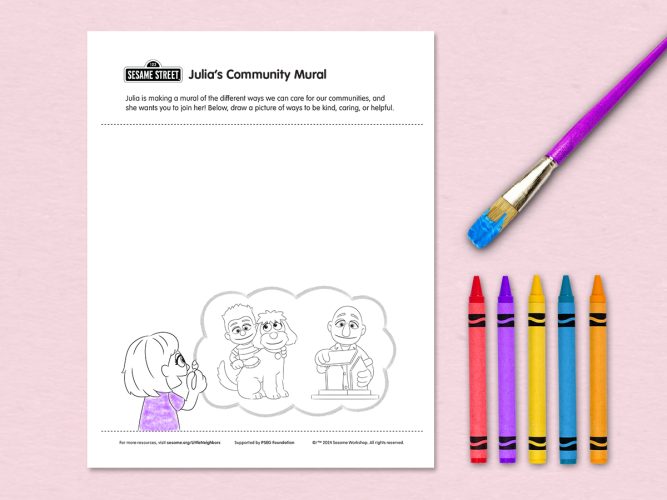
Julia’s Community Mural
There are so many ways to be kind, caring, and helpful in our communities!
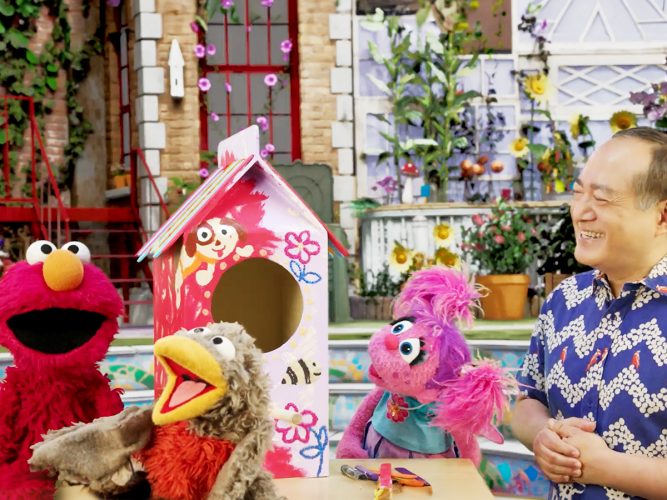
Little Neighbors Can Do Big Things
A new friend joins the Little Neighbors Club!
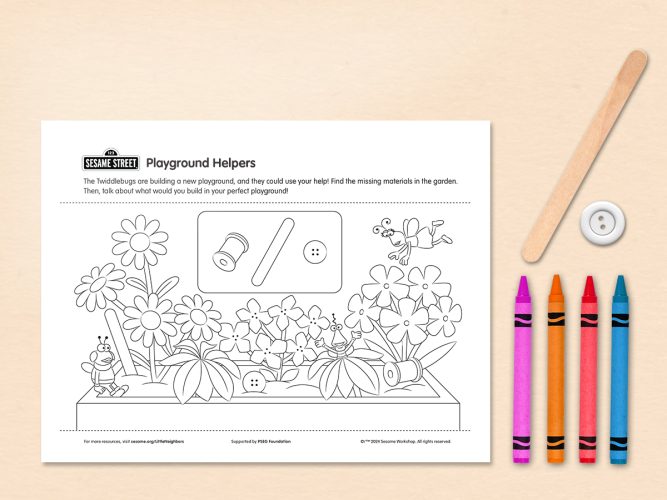
Playground Helpers
Help the Twiddlebugs find their lost materials to build their playground!
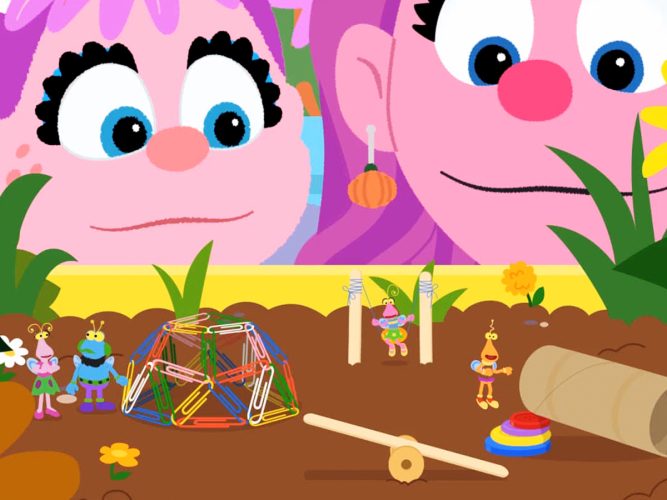
Little Helpers, Big Helping
Kids are never too little to make a big difference!
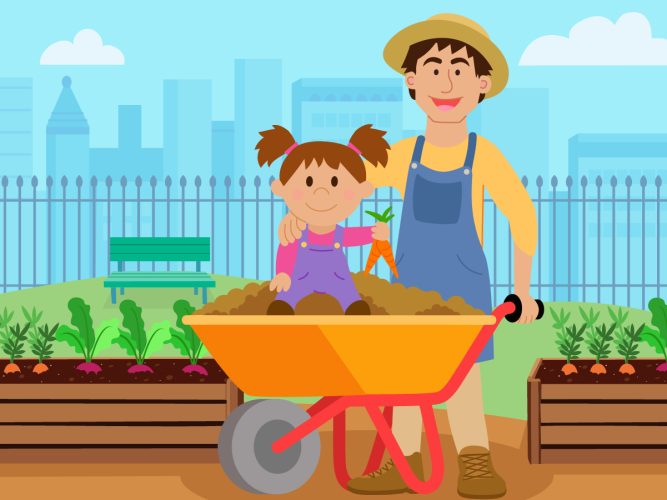
Little Neighbors: Fostering Community Connection, Engagement, and Exploration
